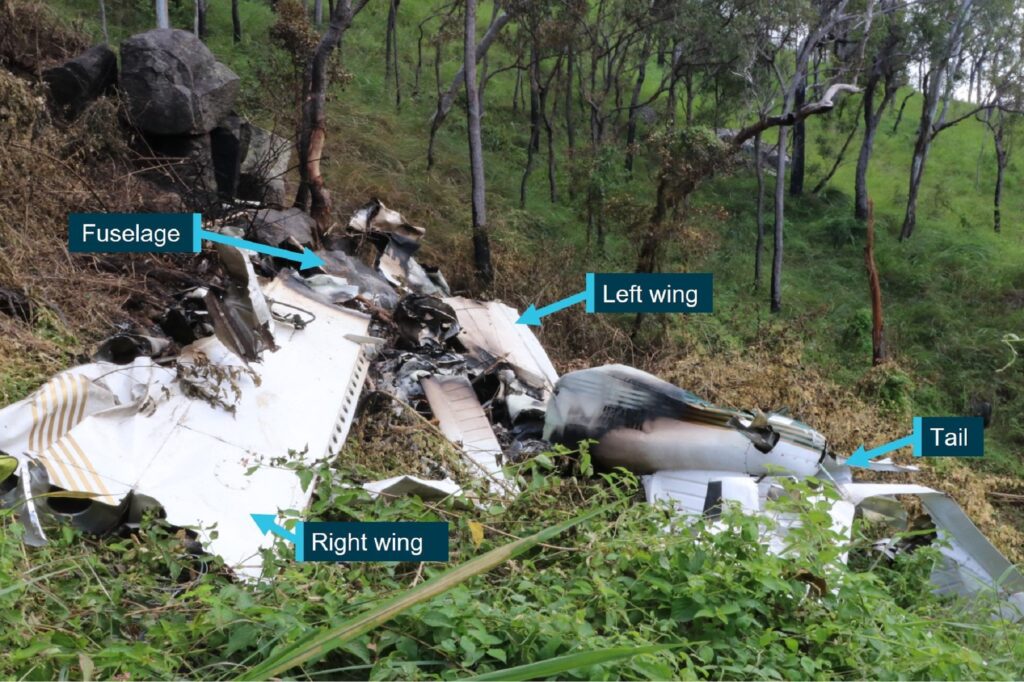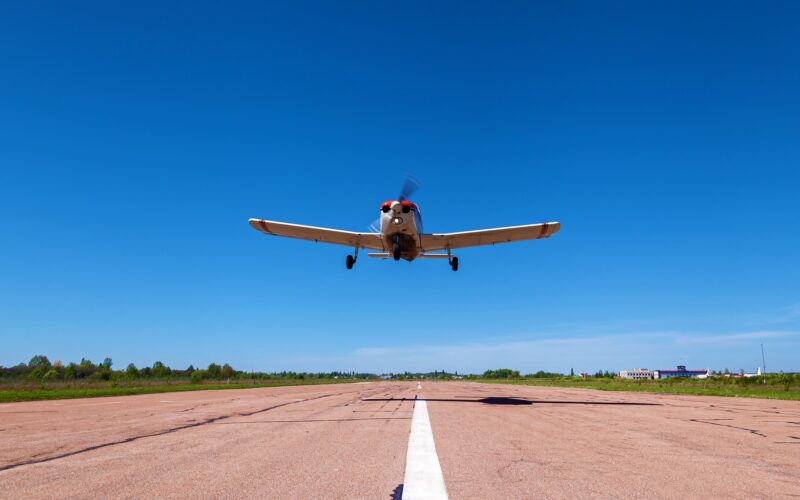The Australian Transport Safety Bureau (ATSB) has concluded that the pilot of a Piper PA-28-180 Cherokee was unlicensed when he crashed in Queensland’s Clarke Ranges.
The crash resulted in the death of the pilot, Rhiley Kuhrt, 22 and his wife, Maree Kuhrt, 24.
On July 4, 2023, the ATSB announced that the bureau had discontinued its investigation into the light aircraft collision after determining the pilot was not qualified to conduct the accident flight.
On April 2, 2023, at 3:30pm local time, the two young adults departed Natal Downs Station on a private flight to the Lakeside Airpark.
For over an hour the aircraft flew towards its destination, but the final position was recorded about 250 meters from the crash site.
When the Piper Cherokee failed to arrive at the Lakeside Airpark, a search and rescue operation was initiated.
On April 3, 2023, the plane’s wreckage was found on a steep slope at 1,913 feet. The Piper was destroyed and both Rhiley and Maree Kuhrt had been fatally injured.
A discontinuation notice published on the ATSB’s website notes the aircraft departed in good weather for visual flight but flew into poor conditions.
This included low cloud around the Clarke Ranges, where the topography was more rugged and elevated than the coastal or inland portions of the planned route.

The conditions over these ranges and toward the coast included significant low cloud, rain and thunderstorms, all of which led to reduced visibility.
Evidence gathered from the accident site suggested the aircraft impacted the ground intact.
“The relatively contained wreckage was representative of a low speed, high angle of attack impact with the ground,” the ATSB said.
A review of records established the pilot did not hold a Civil Aviation Safety Authority (CASA) pilot’s license (either a Recreational Pilot License or Private Pilot License) required to conduct the flight.
Records from the flying school where the pilot trained showed they had completed 30.4 hours of flight instruction between November 2021 and November 2022, including 2.9 hours on the Piper Cherokee.
Rhiley Kuhrt completed the practical requirements to obtain a CASA recreational pilot license but had not completed the flight or theory tests required to have the license issued.
He became the registered owner of VH-PXR in November 2022. The ATSB could not determine how many hours’ experience the pilot had in the aircraft.
The ATSB also found evidence the pilot had completed maintenance on the aircraft’s pitot-static mast in February 2023 to clear blockages.
Kuhrt did not hold an aircraft maintenance engineer license or authorization to perform or certify maintenance on the aircraft.
This type of maintenance could lead to erroneous indications of the airspeed indicator, altimeter, and vertical speed indicator. It could not be determined if this contributed to the accident.
Explaining the reason for the discontinuation of the investigation, ATSB Chief Commissioner Angus Mitchell said there was “limited safety benefit in continuing to direct resources at this investigation when compared with other priorities”.
“Licensing regulations administered by the CASA are designed to ensure pilots are properly trained and qualified to manage challenges likely to be encountered during flying operations. This includes training intended to teach pilots to identify and manage situations presented by adverse weather, both at the pre-flight planning phase and during flight. When pilots operate outside the licensing regulations, they remove built-in safety defenses,” Mitchell said.
Despite the investigation being discontinued, Mitchell emphasized some important safety lessons.
“This accident highlights the importance of following the standards for the operation and maintenance of aircraft to ensure the safety of flight, and further demonstrates that weather continues to remain one of the most significant causes of accidents in general aviation. The ATSB encourages all pilots, regardless of qualification or experience level, to develop the knowledge and skills required to avoid unintentional operations into adverse weather,” Mitchell added.

